Author: everbella
Should You Take Collagen And Biotin Together?
When perusing EverBella products, you may notice that my most popular supplements are Complete Collagen Plus and Complete Biotin Plus. If you’re looking for ways to slow skin aging, maintain thick and healthy hair, and grow strong nails, you may wonder which of these two you should choose.
Both collagen and biotin are crucial for beauty. They play integral parts in the health of your skin, nails, and hair. But that’s just on the outside. On the inside, both of these nutrients offer several health benefits. Understanding these benefits may help you make a more informed decision as to which one of these you should take.
Or, perhaps in this blog, you’ll learn why you want to be taking BOTH of these together.
Let’s start with collagen.
The Benefits Of Collagen
Collagen is the most abundant protein found in the human body. As such, ensuring you have healthy levels of it at all times is critical for not just the appearance of your skin but the structure and function of several organs.
As such, when you take a collagen supplement, you can expect a wide range of positive health effects. These include:
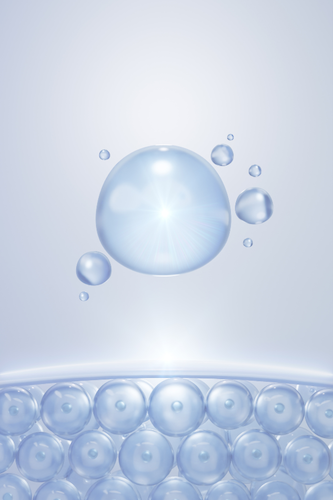
✅ Improved skin health – Studies have shown that a good quality collagen supplement supports skin elasticity, locks in moisture for hydrated skin, and promotes a youthful texture. [1]
✅ Healthier hair – Collagen offers many amino acids needed to make keratin, the main protein that makes up your hair. [2]
✅ Stronger nails – One study found that supplementing with collagen every day led to better nail health after 24 weeks, including better growth rates, reduced breakage, and improved appearance. [3]
✅ Healthier gut – Research shows that collagen can support your gut health, mainly through strengthening the gut lining. [4]
✅ Protected joints – Collagen makes up a lot of your joint cartilage, and maintaining healthy levels in the joints can help you retain proper mobility as you age. [5]
✅ Supported muscles and bones – For the same reason that collagen protects your joints, it maintains the integrity, strength, and density of your muscles and bones, which both contain high levels of the protein. [6, 7, 8]
The Benefits Of Biotin
Biotin is one of the B vitamins – vitamin B7 – and is an essential nutrient. It helps keep your skin, hair, eyes, liver, and nervous system healthy. It also converts the food you eat into energy.
It’s mostly recognized for its beauty effects as it is involved in the production of keratin, a protein that is one of the main components of hair and found in high levels within the skin. [9]
The benefits of taking biotin are mostly related to beauty, including:
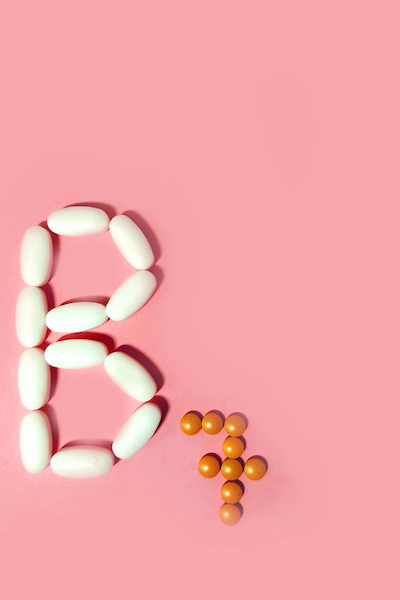
✅ Thicker hair – Research shows that those with low levels of biotin tend to lose their hair in high quantities, and supplementing increases growth. [10, 11]
✅ Protected skin – Your skin layers rely on keratin for protection and structural integrity, constantly needing to produce more as the keratin works through the skin layers and ultimately sheds on the outer layer. [12]
✅ Stronger nails – Keratin is also a main component of your nails, which is why studies have shown that biotin can support the thickness and firmness of nails. [13]
✅ Healthier pregnancy – Nearly 50% of pregnant women develop a biotin deficiency, as this vitamin is crucial for fetal development. This is why biotin supplementation for pregnant women is recommended. [14]
✅ Lower blood sugar levels – Research has shown that taking biotin supplements may regulate insulin within the pancreas, stabilizing blood sugar levels. [15]
Collagen And Biotin Together
Individually, collagen and biotin offer you their own unique benefits, but also some similar benefits that complement each other. This is especially true for the health of your skin, nails, and hair.
I tell most people who are set on choosing one or the other that they should take collagen if they want more focus on skin health and biotin if they’re more concerned about their hair.
But taking both collagen and biotin together simultaneously is the ultimate combo.
This is especially true for your skin. And it isn’t just me saying this, but the scientific research.
For example, one study showed that combining both further improved skin hydration, elasticity, smoothness, and density. [16]
And another study showed that skin appeared more youthful in those taking both, with researchers noting an improvement in collagen structure within facial skin. [17]
If you want to be serious about turning back the clock on your skin and protecting yourself from signs of aging, it’s key to take two of the highest-quality beauty supplements on the market – Complete Collagen Plus and Complete Biotin Plus.
>>> Click here to save 30% on BOTH of these products (and claim free shipping) by shopping my Father’s Day Sale
The Secret Fat Melting Ingredients In Complete Biotin Plus
When I created Complete Biotin Plus, I wanted to deliver a highly absorbable hair growth supplement that was easy to take and actually made a difference. Based on my own experience and the many emails and reviews I receive about how it has helped others, I feel I have achieved my goal.
But did you know most of the ingredients in Complete Biotin Plus can help with weight loss, too?
That’s right! As it turns out, many nutrients that help you get beautiful hair also help you manage your weight. If you’re wondering how they help, then keep reading. In this blog, I’ll cover the ingredients in Complete Biotin Plus that secretly help you lose weight.
Let’s dive in!
Vitamin D and Weight Loss

While vitamin D can help regulate your hair growth cycle so you regrow the hair you shed, it can also help you lose weight.
Interestingly, overweight people tend to have lower levels of vitamin D. [1]
While some researchers theorize that this may simply be due to a larger body size requiring more of the nutrient, many overweight people still have low levels of this important vitamin. But if they had sufficient levels of it, this could actually help them lose weight.
This is showcased in a 2014 study where overweight women were put on an exercise and diet regimen to lose weight. Half the women were given vitamin D, while the other half received a placebo. As you may have guessed, the group who took the vitamin D lost much more weight than those not boosting their vitamin D levels. [2]
Additionally, research has found that simply raising vitamin D levels in overweight women helped decrease body fat. [3]
On the flip side, vitamin D could also prevent you from gaining weight. One study of over 4,600 elderly women found that high blood levels of vitamin D were associated with less weight gain over 4.5 years. [4]
Researchers believe the mechanisms behind vitamin D’s weight management come down to its ability to reduce the formation of new fat cells in the body while also suppressing the storage of fat cells. [5, 6]
It also regulates certain hormones that may be involved in appetite and other areas of weight management.
Selenium and Weight Loss

Selenium plays an important role in hair health by regulating hormones through the thyroid. By this same mechanism, it can also help aid in weight loss.
See, the thyroid contains high levels of selenium, which is used to make and metabolize thyroid hormones. These hormones regulate many metabolic functions throughout the body, including how many calories you burn. [7]
Like vitamin D, taking selenium can help you on your weight loss journey. For example, in one study, overweight adults took a selenium supplement every day while on a calorie-restrictive diet. Those taking the selenium lost more weight than the ones who weren’t. [8]
Low levels of selenium are also linked to a higher body mass index (BMI). A study of over 3,200 people found that those who consume less selenium had a higher BMI. They also found that even just a small increase of regularly consumed selenium in a person’s diet corresponded to a 3-6% decrease in body fat. [9]
Black Cumin Seed Oil (Nigella Sativa) and Weight Loss

Black cumin seed oil from the flowering plant Nigella sativa has proven to have several health benefits, from boosting hair growth to promoting healthy digestion. And, as you’ve likely guessed, it can also help you with weight management.
Research has shown that black cumin seed oil can help people prevent weight gain while helping to reduce fat within the body. In fact, a review of 14 clinical trials and 5 studies published in 2022 concluded that black cumin seed oil can considerably lower weight within 6-12 weeks through various healthy changes within metabolic systems. [10, 11]
A lot of this is due to thymoquinone (TQ), a powerful antioxidant and anti-inflammatory found in black cumin seed oil.
Through this compound and others found in the oil, black cumin seed oil has been shown to suppress appetite for a decreased caloric intake, lower blood sugar levels, and improve insulin resistance – two crucial markers in weight management.
Complete Biotin Plus and Weight Loss
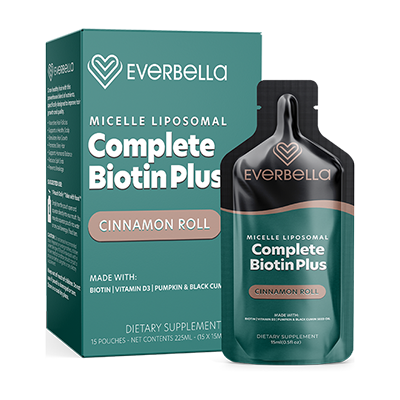
If Complete Biotin Plus can increase hair growth, strengthen your nails, and even protect your skin layers through keratin production… does this mean it’s the ultimate beauty supplement?
I think YES.
Whether you’re looking to lose weight or to prevent yourself from gaining weight, Complete Biotin Plus includes ingredients proven to enhance your metabolism, control fat storage and production, and regulate hormones that can disrupt your weight goals.
Keep looking and feeling your best with Complete Biotin Plus.
>>> Learn how you can claim HUGE savings on your order of Complete Biotin Plus TODAY by clicking here!
CBD + Collagen = A Magic Skin Combo
If you’re like most women (including me!) then the health of your skin is super important to you. The health of your skin can determine how dry it is, if it appears thick or thin, wrinkles, sagginess, blemishes, and more.
In short, your skin is the top determining factor in how old you look.
Thankfully, in our modern day and age, we understand what harms the skin and what makes it healthier. And today I want to talk to you about two major powerhouses when it comes to skin health and why you should take them together!
The duo is CBD and collagen. But what makes them so great together? Before we get into that, let’s take a look at them separately…
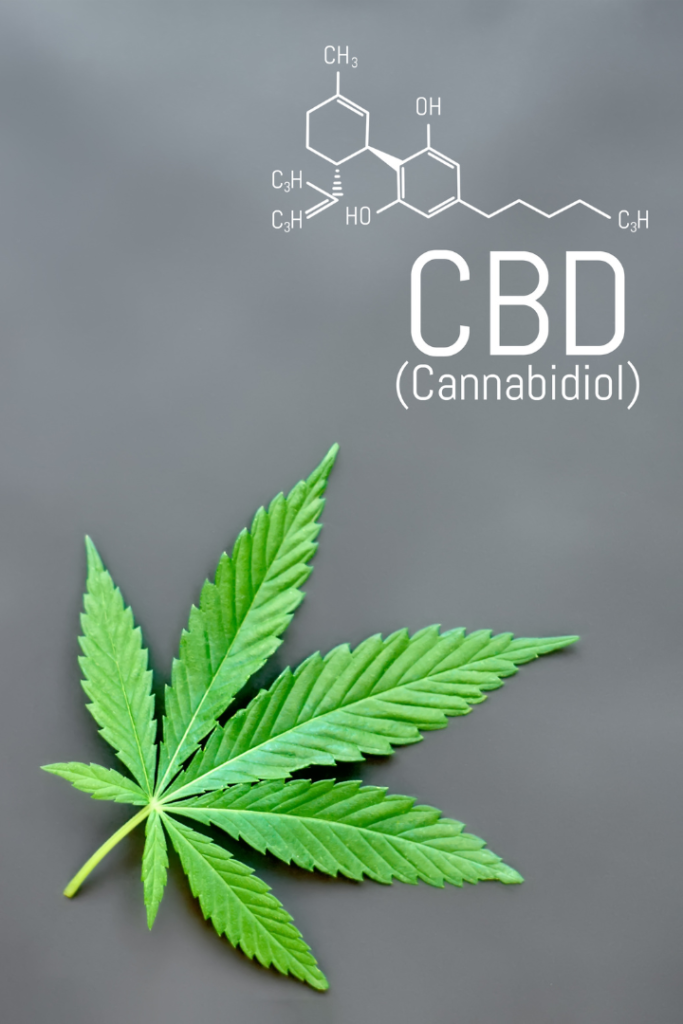
What is CBD?
CBD – short for cannabidiol – is one of the best understood and most studied cannabinoids in the cannabis sativa plant. With its legalization in 2018, even more studies have come out on this incredible compound.
Before we get into those benefits and how CBD specifically helps the skin, it’s important to know that CBD cannot get you “high” or alter your thinking at all. That’s THC, another prevalent cannabinoid in the cannabis plant. And unless specifically stated, most CBD supplements do not have more than 0.3% THC – levels far too low to have any affect on your body.
The benefits of CBD
CBD has many proven benefits through years of rigorous research. These include…
✅ Improves sleep – A large case series from 2019 found that CBD use improved sleep in participants by nearly 67% after just one month! When we’re stressed, our bodies produce a hormone called cortisol. Dubbed “the stress hormone,” cortisol can negatively impact sleeping patterns. But according to research, CBD can help regulate cortisol levels, helping us to relax. [1, 2]
✅ Supports joint health and eases pain – CBD can lower aches and discomfort within the joints by helping manage inflammation. Research has shown that CBD reduces the levels of pro-inflammatory cells in the body, all while increasing the levels and effectiveness of crucial immune cells. CBD has also been found to target the areas of the joints suffering from chronic inflammation in those with rheumatoid arthritis, providing relief. And if all of that wasn’t enough, CBD can also help strengthen the tissue of the joints. An analysis of CBD joint studies concluded that there is sufficient evidence that CBD may be able to both reduce cartilage degradation and facilitate cartilage repair. [3, 4, 5]

✅ Protects and supports brain cells – Ongoing research is showing that CBD may have neuroprotective properties, specifically against cognitive decline and certain conditions and disorders of the brain. One of the main factors in cognitive decline has to do with oxidative stress and inflammation. These cause damage to neurons, inhibiting proper brain function. Thankfully, CBD has been shown to offer protective effects in the brain by reducing these factors while also helping to repair and replace neurons, supporting cognition. [6, 7, 8]
✅ Relieves anxiety and depression – CBD helps increase levels of what’s been dubbed the “bliss molecule” – a neurotransmitter called anandamide. Researchers believe that a deficiency in endocannabinoids, such as anandamide, can lead to depression, migraines, and other conditions of the brain and nervous system. [9, 10]
✅ Relieves menstrual pain – A recent review of studies that looked into CBD as an aid for PMS showed that the compound could be helpful in providing relief to many of the symptoms involved with the syndrome. Another study from 2015 found that CBD may help provide menstrual cramp relief due to its anti-inflammatory and pain-relieving properties. [11, 12]
✅ Boosts immunity – CBD can help boost the immune system and protect against infection. Research has shown that the compound helps regulate the immune system for a more robust and targeted response. [13]
✅ Increases hair growth – Certain cannabinoid receptors have been found to be key players in hair follicle growth. CBD has also been shown to help the hair properly cycle through its growth phases and it may help regulate hormones which are often involved in hair loss conditions. [14, 15]
But what about CBD and the skin?
When it comes to the skin, CBD offers incredible effects. Most skin issues stem from oxidative stress and inflammation. These are two areas where CBD offers invaluable support, eliminating unnecessary inflammation and destroying the free radicals that cause oxidative stress.
As such, CBD offers plenty of benefits within the skin: [16]

✅ Clears up acne – One of the most common skin disorders in the world, acne affects people of all ages. It’s caused by increased sebum (natural skin oil) production, along with inflammation of the gland which produces this oil. But research has shown that topical CBD can help regulate sebum production, all while reducing inflammation!
✅ Skin tumors – Tumors of the skin are the most common malignancies in humans. As such, combating them has been an extensive area of research. Thankfully, CBD has been shown to be an effective treatment for these. Research shows CBD can kill skin tumor cells and prevent them from populating.
✅ Heals wounds – Considering CBD interacts with mechanisms in your body that regulate the protein structures of your skin, along with skin inflammation, it’s no surprise that CBD can help cuts and scrapes heal at a faster rate. By stimulating certain immune cells and fibrous proteins within the skin, CBD helps wounds heal more efficiently.
✅ Alleviates rashes and psoriasis – Skin conditions that result in a rash of itchy, scaly patches are the result of inflammation and an unbalanced immune system. Thankfully, through various mechanisms, CBD has been shown to help rebalance immunity. For example, two studies in psoriasis patients – one from 2019 and another from 2020 – showed that topical CBD improved skin hydration and elasticity all while reducing inflammation, itching, and burning. [17, 18]
✅ Reduces itchiness – Many skin conditions can cause itchiness. But once again, CBD comes to the rescue! One study had participants experiencing itchiness apply a CBD cream to the itchy area every day for three weeks. At the end of the study, 52% of them reported significantly reduced itchiness, while 38% of them stated that the itchiness was completely gone.
Even if you’re not experiencing skin issues, CBD can help prevent them from ever happening.
CBD interacts with receptors within the skin that directly affect skin homeostasis and barrier function – two critical factors that determine skin health. [19]
So not only is CBD the answer to any skin woes, it’s also the ultimate skin protector.
But why should you be taking it with collagen?
Collagen recap
Collagen makes up 30% of the protein in the human body, making it the most prevelant protein in your body. That alone should tell you everything you need to know about its importance.
Collagen is so prevalent because it’s a structural protein. It’s easiest to think of collagen as the glue that holds everything together, because it kind of is! This includes within your skin.
The good news is that your body naturally produces collagen. The bad news is that this production starts to slow down after the age of 25, with both the amount and quality of the collagen diminishing. Factors such as stress, pollution, processed foods, cigarettes, alcohol, and even menopause can severely diminish collagen levels as well.
This is why boosting and maintaining levels with EverBella’s highly absorbable collagen, Complete Collagen Plus, is super important.
In short, collagen is literally what keeps your skin together and the only reason we get wrinkles, saggy skin, and start to look older with each year is due to our collagen lowering in both quality and numbers.
Collagen + CBD
As mentioned, collagen plays a crucial role in protecting and maintaining your skin structure and strength, which are both impacted by the aging process. Increased intake of the protein has also been found to reduce the visible signs of aging within the skin, including fine lines and wrinkles. [20, 21]
And as I discussed, CBD is a powerful antioxidant and anti-inflammatory within the skin. This protects your skin from the signs of aging by stopping collagen from breaking down. This means that the collagen within your body can last longer. [22]
But that’s not all.
CBD also strengthens your collagen by enhancing collagen’s ability to link together, creating firmer bonds (meaning firmer skin). [23]
CBD for your skin
Taking in collagen to boost and maintain your levels with a supplement like Complete Collagen Plus is one thing. But helping that collagen to bind together better, last longer, and be stronger is another.
EverBella’s sister company can help you deliver high-quality CBD into your skin.
SomaLeaf’s Soothe roll-on stick not only smells amazing, it SOOTHES your skin, protects it from inflammation, strengthens your collagen, and locks in moisture.
Plus, Soothe also contains 24 other skin-boosting compounds that have been carefully selected to make your skin GLOW!
Learn what they all are and how they can help you (including by HEALING scars) by clicking here >>>
Two Ingredients For Oil-Free Skin – Grape Seed Extract And Bamboo Leaf
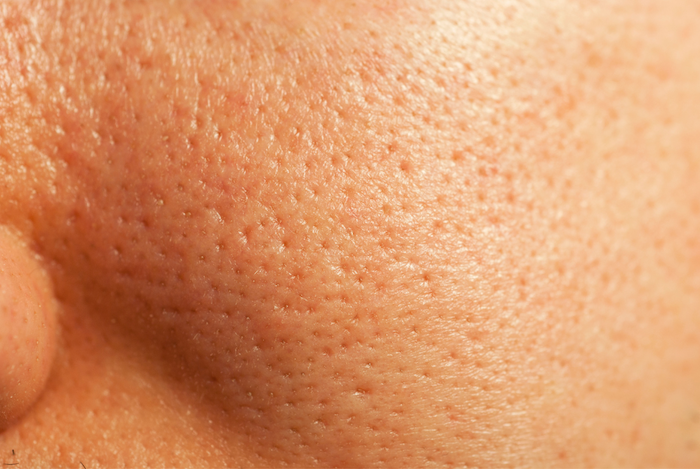
Everyone has oil on their skin. Each of our pores contains what’s called a “sebaceous gland” that produces a natural oil called sebum. This oil is good for your skin, keeping it healthy and hydrated.
But sometimes, these glands can produce too much oil, causing your skin to look wet, shiny, and greasy, even shortly after you’ve just washed your face.
If you have overly oily skin, you may be wondering what you can do about it. Well, I’m here to help! I’m going to tell you about the causes of oily skin, along with two incredible natural ingredients that can help stop your skin from being so oily.
Let’s start with what may be causing your oily skin…
7 things that cause oily skin
Genetics – Research indicates that if a parent has oily skin, you’re more likely to have oily skin as well.
Age – As we age, sebum production slows down. While this allows for less oily skin, it’s also why those who are older tend to have dry skin. As such, if you have oily skin, your skin may actually age slower!
Where you live – If you live somewhere hot or humid, then your skin is more likely to be oily.
Enlarged pores – Larger pores tend to produce more oil.
Bad skincare products – If you have oily skin, don’t use oil-based products or creams that are too heavy.
Overdoing your skincare routine – If you’re washing too much, you’re stripping away your natural oils. And while this may seem like the right thing to do, it can actually put your sebum production into overdrive while your glands try to make up for the lost oil.
Skipping your moisturizer – Similarly, if you’re washing but not moisturizing, your glands may be forcing themselves to work overtime to boost oil production.
While these may cause oily skin, what can you do to stop them? If you have oily skin and feel like you’ve tried everything to no avail, keep reading! There are two ingredients that can help you lower the amount of oil on your skin.
Ingredient #1: Grapeseed oil

What is grapeseed oil?
Grapeseed oil is a type of vegetable oil derived from the seed of, you guessed it, grapes! Tons of grapeseeds are put aside by the wine industry each year, and the beauty industry gets to take those seeds and make an oil out of them to help, among other things, reduce the oil in our skin.
How does grapeseed oil reduce oily skin?
It may seem like fighting fire with fire to use a type of oil to reduce the oil on your skin, but it actually works!
One of the main reasons is that grapeseed oil is a good source of linoleic acid. Sometimes called vitamin F, linoleic acid is a polyunsaturated fatty acid – an essential omega-6 fatty acid that is needed for the proper function of the body.
One of the functions in the body that linoleic acid is responsible for is sebum production. It helps balance the production of oil in the skin, which is why people with skin that is either too oily or too dry tend to have low levels of this omega-6 fatty acid.
Additionally, linoleic acid helps make your sebum thinner. Sometimes sebum is produced too thick, and it gets caught in the pores, causing build-up and acne. But linoleic acid helps prevent your sebum from building up.
If you want to boost linoleic acid levels and help regulate sebum production while ensuring your sebum isn’t so thick that it’s causing pore blockage, make sure you’re taking a natural ingredient like grapeseed oil that’s high in linoleic acid.
Ingredient #2: Bamboo leaf extract
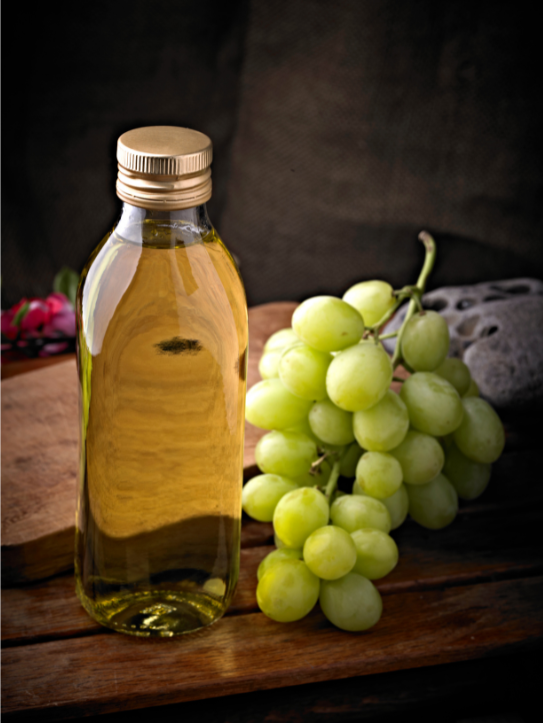
What is bamboo leaf extract?
Bamboo is a plant native to Asia, and its leaves offer several health benefits, especially for the skin. It’s often included in beauty products because it’s a natural source of silicon dioxide, also known as silica, which boosts collagen production, increases skin strength, and boosts hair growth.
But it also has another benefit – reducing oily skin.
How does bamboo leaf extract reduce oily skin?
Outside of promoting general health for the skin, bamboo leaf extract helps to reduce oily skin by sending what are called porous particles to the skin. These natural particles actually absorb excess sebum from the skin when your glands make too much, allowing you to have balanced skin even if too much oil is produced!
How to get both of these ingredients at once
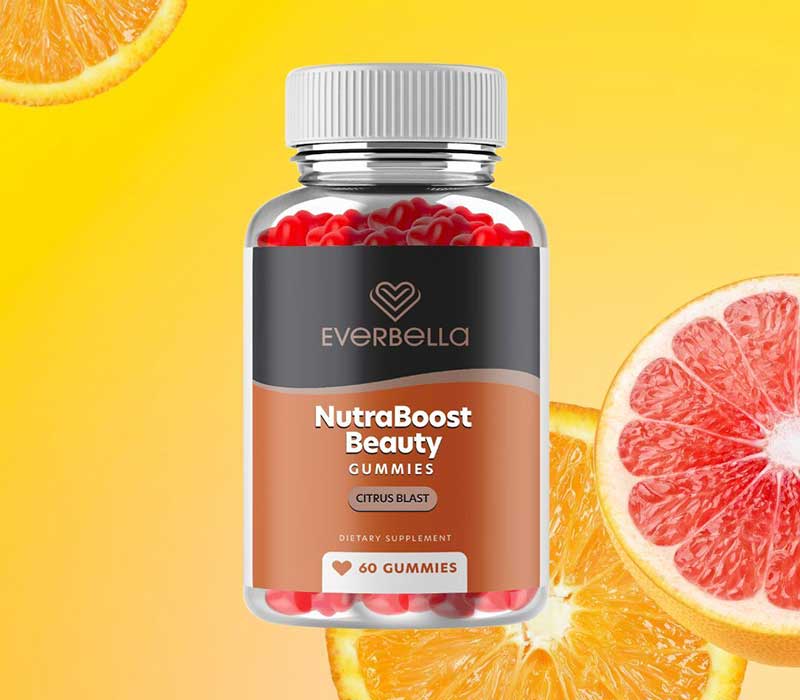
Reading this, you may be trying to decide which of these ingredients you want to go buy to help balance the oil on your skin.
But here’s the thing – you can get them BOTH in the same place!
EverBella’s NutraBoost Gummies contain grape seed oil and bamboo leaf extract so that you can have healthy-looking skin without having to buy a bunch of different products (products that might be stripping oils from your skin, causing your glands to overproduce sebum).
12 Amazing Reasons To Take Biotin
Hey there! Today, I want to talk to you about this little powerhouse called Vitamin H, or as it’s more commonly known, biotin. It’s like the unsung hero of the B vitamin family, working behind the scenes to keep our bodies running smoothly. We’ll cover exactly how in just a moment. But first…
What is biotin?
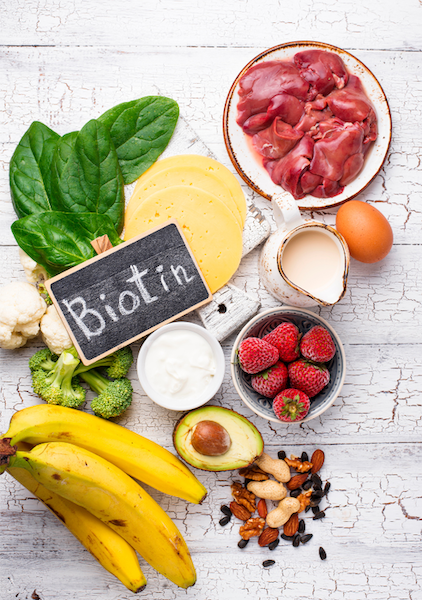
Biotin is part of the B complex gang, and these guys are all about turning our food into energy. They’re like the fuel for our bodies, helping us metabolize fats, carbs, and protein. Plus, they’re water-soluble, meaning our bodies don’t stockpile them, so it’s important to keep them coming in regularly. On top of that, it’s crucial for healthy skin, hair, and nails. It’s why they call it the beauty vitamin! Plus, it plays a role in keeping our nervous system in tip-top shape.
But here’s the thing – sometimes we can run low on biotin. This can happen if we’re not absorbing enough from our food or if we have certain health issues. And when our biotin levels drop, our bodies can start showing some signs, like hair loss, fatigue, or even depression. You definitely want to catch it before that happens!
So, how do we make sure we’re getting enough biotin? Well, we can start by loading up on foods that are rich in it. Think liver, eggs, salmon, and sweet potatoes – yum! But if you want to KNOW you’re always getting enough, there are always supplements, like micelle liposomal biotin, that can deliver biotin straight to your bloodstream for maximum absorption.
Before you commit to adding biotin to your supplement regimen, though, you may be wondering what kinds of benefits you can expect. After all, you want to know how to tell that the biotin is working. Well, that’s what this blog is all about! The many benefits of biotin.
So, without further ado, let’s talk about the perks of having enough biotin in our lives.
1. Energizes Your Metabolism
Biotin plays a crucial role in converting carbohydrates, fats, and proteins into energy that our body can use. It acts as a coenzyme in several metabolic reactions, helping enzymes break down macronutrients into usable forms of energy. Without enough biotin, these metabolic processes can slow down, leaving you feeling sluggish.
2. Heart Health Booster
Biotin helps regulate cholesterol levels by increasing the production of high-density lipoprotein (HDL) or “good” cholesterol while decreasing low-density lipoprotein (LDL) or “bad” cholesterol. By improving the lipid profile, biotin supports healthy blood flow, reducing the risk of cardiovascular diseases like heart attacks and strokes.
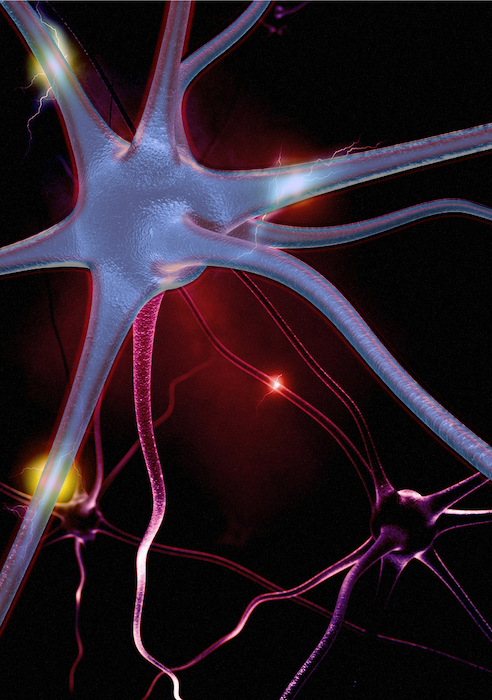
3. Brain Power Potion
Biotin is essential for the synthesis of myelin, a protective sheath that surrounds nerve fibers in the brain and spinal cord. Myelin ensures efficient transmission of nerve impulses, which is critical for cognitive function, memory, and overall brain health. Biotin also supports neurotransmitter synthesis, facilitating communication between brain cells.
4. Immune System MVP
Biotin plays a role in the production and maturation of white blood cells, including T cells, B cells, and natural killer cells, which are key players in the immune response. By enhancing the immune system’s ability to recognize and eliminate pathogens, biotin helps defend against infections and illness.
5. Blood Sugar Stabilizer
Biotin assists in the metabolism of glucose by enhancing the activity of enzymes involved in glucose utilization and insulin production. By improving insulin sensitivity and glucose uptake by cells, biotin helps regulate blood sugar levels, reducing the risk of hyperglycemia and type 2 diabetes.
6. Pregnancy & Breastfeeding
Biotin is crucial during pregnancy and lactation for fetal development and maternal health. It supports embryonic growth, neural tube formation, and placental function. Biotin deficiency during pregnancy can lead to birth defects and complications, making adequate intake essential for both mom and baby.
7. Inflammation Fighter
Biotin possesses anti-inflammatory properties that help alleviate inflammation and oxidative stress in the body. By inhibiting pro-inflammatory cytokines and promoting the production of anti-inflammatory molecules, biotin can reduce swelling, pain, and tissue damage associated with inflammatory conditions.
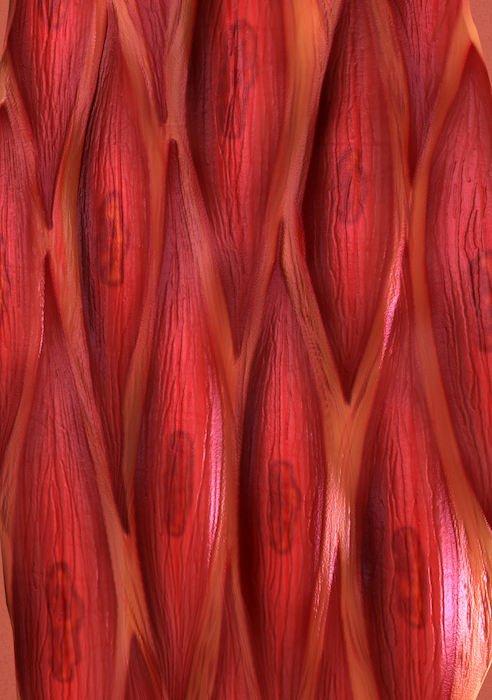
8. Tissue & Muscle Repairer
Biotin promotes tissue regeneration and repair by facilitating cell proliferation, collagen synthesis, and wound healing. It also supports muscle function and recovery by enhancing protein metabolism and energy production within muscle cells.
9. Multiple Sclerosis Tamer
Biotin’s anti-inflammatory and neuroprotective effects make it a potential therapeutic agent for managing multiple sclerosis (MS). By reducing inflammation and promoting myelin repair, biotin may help alleviate symptoms and slow disease progression in individuals with MS.
10. Weight Loss Wingman
Biotin aids weight loss by boosting metabolism, increasing fat metabolism, and promoting satiety. By enhancing energy production and regulating appetite hormones, biotin can support weight loss efforts and help maintain a healthy body composition.
11. Skin & Nail Savior
Biotin is essential for the synthesis of fatty acids, which are vital for maintaining healthy skin and nails. It supports keratin production, the protein that forms the structural basis of skin, hair, and nails, promoting strength, elasticity, and hydration.
12. Hair Health Hero
Last but certainly not least, biotin enhances hair growth and quality by supporting keratin production, improving follicle function, and increasing blood flow to the scalp. It also helps prevent hair loss, dryness, and brittleness by nourishing hair follicles and promoting a healthy scalp environment.
How to get yourself these benefits (and more)

Whether you’re looking to boost your energy, protect your heart, or just give your hair a little extra love, biotin has got you covered. But you need to make sure it’s actually getting absorbed and used by your body.
That’s where Complete Biotin Plus comes in. EverBella’s Micelle Liposomal formula ensures full absorption of biotin so that you get the FULL effects of what this nutrient has to offer.
What’s amazing is that the above aren’t even all the benefits you can expect from Complete Biotin Plus. There are FOUR other important nutrients in Complete Biotin Plus that all benefit your health in various ways.
7 Ways Amla Berries Boost Your Health
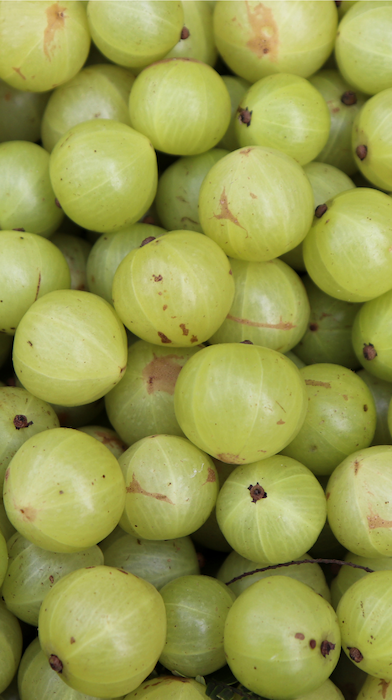
Amla berries, also known as Indian gooseberries – or scientifically as Phyllanthus emblica and Emblica Officinalis – is a fruit tree native to parts of Asia, most prominently India. It’s rich in nutrients and has several uses in herbal medicine.
Amla berries grow on small trees, are about the size of a golf ball, and are yellow-green in color. They taste sour, bitter, and acidic.
In today’s blog, I will share with you the many benefits of amla berries, along with the studies to back it all up!
>>> Click here to learn the BEST way to get amla berries and all the benefits listed below
1. They’re anti-aging
Thanks to amla berries’ high antioxidant content, including vitamin C, the fruit offers some incredible anti-aging benefits. Antioxidants like vitamin C help prevent cellular damage, slowing your body’s natural aging process. [1]
This and other factors allow amla berries to benefit your health and beauty in a few ways…
For your skin, amla berries help prevent the breakdown of collagen, which is the main protein that forms your skin. When collagen breaks down, your skin becomes thin, wrinkly, and vulnerable to blemishes and other skin conditions. [2, 3]
For your hair, extracts of these berries are actually commonly used to promote hair growth due to their ability to inhibit an enzyme that can cause hair loss. [4]
For your eyes, compounds with amla berries have been shown to protect against age-related macular degeneration (AMD) – one of the biggest causes of blindness in older adults – by improving the mitochondrial health of the eyes. [5]
2. They support heart health
Amla berries can help your heart stay strong and healthy in several ways.
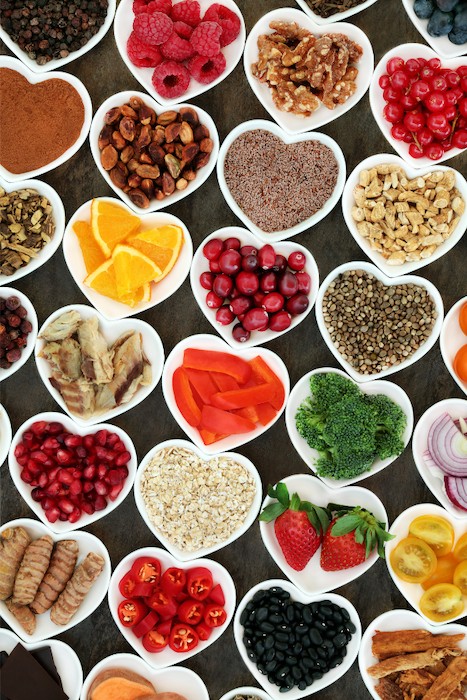
First has to do with its antioxidant effects. Several animal studies have found that amla berry extracts can help protect against the oxidative damage that’s associated with heart injury. [6, 7, 8]
It’s also been shown to help improve endothelial function. The endothelium is a thin membrane that lines the inside of the heart and blood vessels and its health is very important to the well-being of your heart. One study even found that taking amla berry extract had the same impact on improving endothelial function as a drug prescribed for this purpose. [9, 10]
Inflammation is one of the main factors in the development of heart disease, and thankfully, amla berries have been shown to significantly reduce inflammation in humans. [9, 11, 12]
Additionally, several human studies have shown that amla berries allow for healthy blood fat levels. Research has found that consuming amla berries reduces LDL (bad) cholesterol, increases HDL (good) cholesterol, and lowers triglyceride levels. This helps to keep your heart healthy and clear of build-up. [9, 11, 13, 14]
High blood pressure is another thing that can harm your heart. But, studies have shown that amla berries help widen the blood vessels for easier blood flow and lower pressure. [12, 15]
And if all of this wasn’t enough, amla berries also have an anti-platelet effect, meaning they help prevent the formation of blood clots, which can cause a heart attack or stroke if they block an artery. [12]
3. May have anti-cancer effects
While there hasn’t been any research into how well amla berries can fight cancer in humans, there have been some very interesting test-tube and animal studies on the subject.
In these types of studies, amla berry extracts have killed certain types of cancer cells, including breast, cervical, ovarian, and lung cancers. [16]
Researchers believe this has to do with the high level of tannins and flavonoids within these berries, along with the concentration of vitamin C and other antioxidants.
4. Balances blood sugar levels
Amla berries are showing some promise to those with blood sugar conditions such as type 2 diabetes due to how it affects blood sugar levels in early studies.
Several animal studies have shown that taking these berries helps lower blood sugar levels. [17, 18, 19]
And one human study found that those taking amla berry powder daily for 21 days saw a significant drop in blood sugar levels following fasting and meals when compared to a control group. [14]
5. Helps protect against liver damage
Rat studies have found that, when given diets containing liver-harming compounds, amla berry extract protects against liver damage. Researchers believe that this is due to the berry’s anti-inflammatory and antioxidant activity. [20, 21, 22]
6. Helps reduce heartburn
A high-quality study done in humans was carried out in 2018 with the aim of seeing how amla berries helped those with frequent heartburn. Researchers saw that 1,000 mg daily of amla fruit tablets reduced the frequency and severity of heartburn and vomiting than those in the placebo group. [23]
7. Bolsters immunity
Amla berries have immune-boosting effects thanks to their high vitamin C content.
Vitamin C helps increase the power of your immune system in many ways, including enhancing antioxidant support, managing the inflammatory response, producing specialized immune cells, and helping your body create protective antibodies. [24, 25]
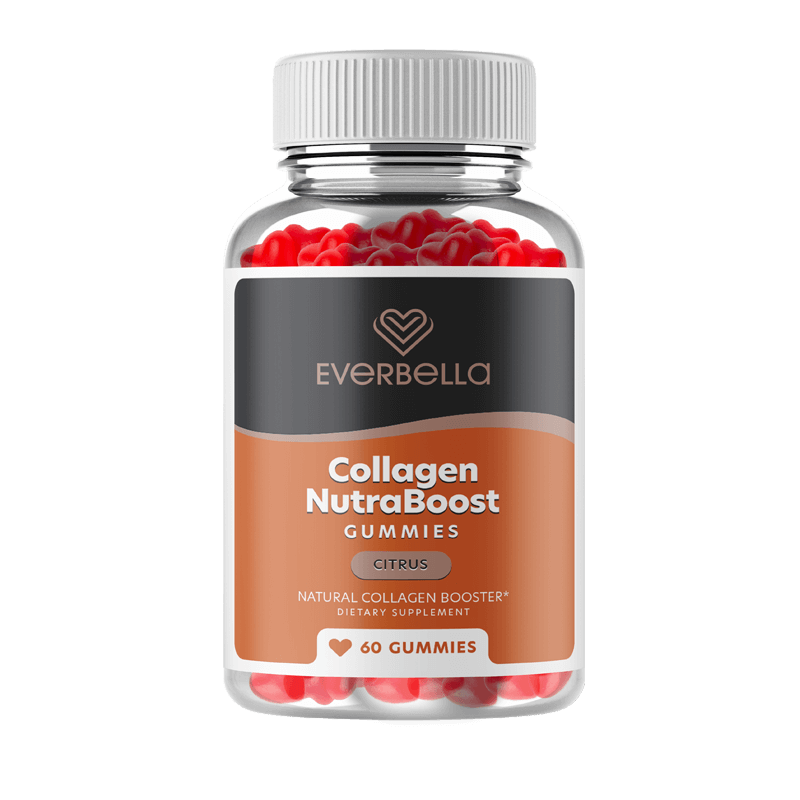
Getting amla berries
If you want to try amla berries to support your health in the above seven ways, then look no further. My NutraBoost gummies contain a full dose of amla berry extract so that you can look and feel your best!
Plus, these delicious citrusy berries contain EIGHT other beneficial compounds.
